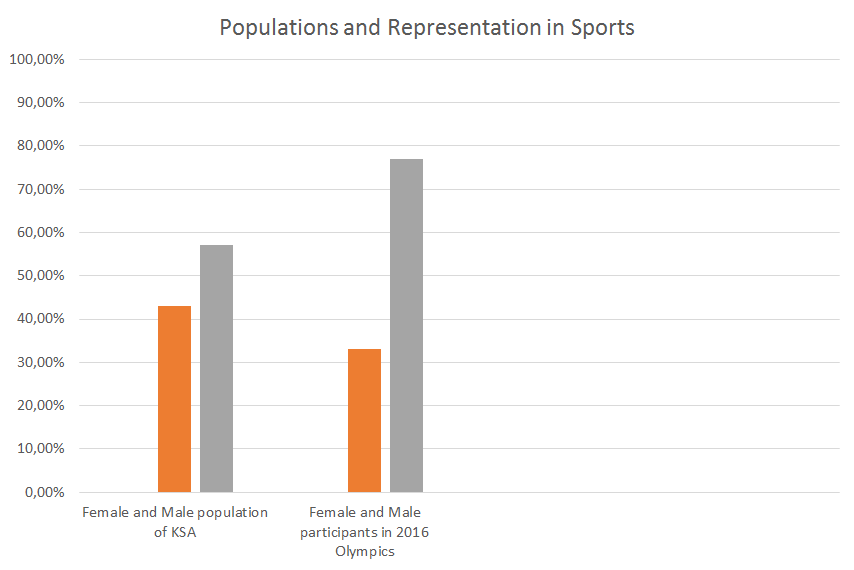The issues of social justice and human rights in education are very important to me, as I come from the Kingdom of Saudi Arabia, which is one of the leading nations in the Islamic world. At the same time, it has many problems regarding the rights of women in education. Although the majority of women in my country are allowed to benefit from public education and enroll in colleges and universities, true equality is still a distant goal (Alsuwaida, 2016).
One of the greatest barriers to human rights and female empowerment in education in KSA revolves around sports (Carnoy, 2005). It is my duty as an educator to ensure equal opportunity and protect the rights to education in all my students, especially those from underprivileged and disadvantaged backgrounds. The issue of women in sports directly relates to these concerns.
Social justice is a concept that revolves around the equal distribution of wealth, opportunity, and privileges. It states that the existing inequality in power and wealth occurred because of the systematic injustices against underprivileged classes throughout the entirety of human history (Thompson, 2016). Although the equality of outcomes is a controversial subject, the equality of opportunity is in direct connection to the subject of Arabic women in sports. Human rights constitute a set of rights that a person has through the virtue of being human, regardless of their nationality, race, citizenship, religion, and political beliefs (United Nations, 1948).
Women’s rights, under the jurisdiction of the UN, include the right to live free from violence, slavery, and discrimination; to be educated; to own property; to vote; and to earn a fair and equal wage (United Nations, 1948). In regards to sports, the existing prohibitions against women violate several human rights, such as the right to move, the right to equality before the law, and the right to play. As a result, girls and women in Saudi Arabia do not have educational and leisure opportunities to engage in sports for competition or health reasons (See Figure 1).
Numerous players and stakeholders affect the issue of sports in women in relation to human rights and social justice in Saudi Arabia. The major stakeholders include the government, the religious institutions, and the society in general (Alsuwaida, 2016). Due to the political, religious, and historical circumstances in Saudi Arabia, women are not seen as equals to men (Mtango, 2004). The basis for such treatment lies in their legal status as well as the perceptions of women in the Quran. Therefore, these factors place certain boundaries on how human rights and social justice is perceived in the region.
The declaration of human rights itself was created in 1948 and ratified by 48 countries (United Nations, 1948). Saudi Arabia abstained from ratifying the declaration based on it violating the Sharia Law. The particular articles that the Saudi delegation protested were the rights to religious freedom and the rights to freedom of marriage. Changing the belief system and winning the hearts and minds of the Saudi people is, thus, a long and difficult process. Sports does not directly relate to these objections, meaning that there is a chance to start the process of change by promoting the rights of women to competition, leisure, and education.

Success or failure in the evolution of human rights in the kingdom of Saudi Arabia relies on a deep understanding of the major documents (such as the Universal Declaration of Human Rights and Women’s Rights) as well as the religious and historical readiness of the society to gradually accept change (Tobin, 2009). Forcing a liberal western agenda too soon would alienate the people and set the country back for many years. The struggle for widening and improving the situation for women in Saudi Arabia should be made possible by promoting less controversial subjects, such as sports and professional athleticism.
References
Alsuwaida, N. (2016). Women’s education in Saudi Arabia. Journal of International Education Research, 12(4), 111-118.
Carnoy, M. (2005). Globalization, educational trends, and the global society. OSI Education Conference 2005, 1-31.
Mtango, S. (2004). A state of oppression? Women’s rights in Saudi Arabia. Asia-Pacific Journal on Human Rights and the Law, 1, 49-67.
Thompson, N. (2016). Anti-discriminatory practice: Equality, diversity and social justice. London, UK: Macmillan.
Tobin, T. W. (2009). Using rights to counter “gender-specific” wrongs. Human Rights Review, 10, 521-430.
United Nations. (1948). Universal declaration of human rights. Web.